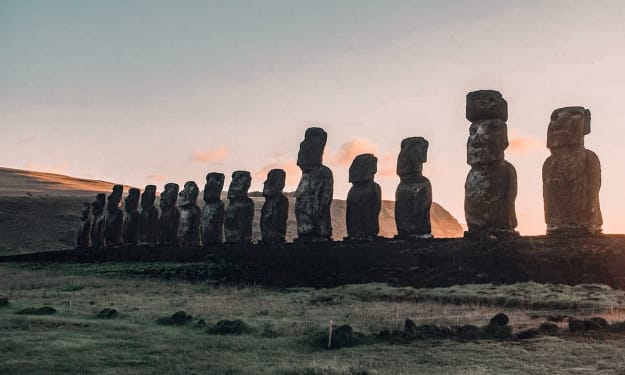Navigating the Currents
Exploring Contemporary Anthropological Theories

Introduction:
Contemporary anthropological theories reflect the evolving nature of the discipline, responding to shifts in global dynamics, social movements, and theoretical debates. In this article, we delve into the landscape of contemporary anthropological theories, examining key concepts, debates, and approaches that shape current research and scholarship. From postcolonialism to feminist anthropology, and from globalization to posthumanism, we explore the diverse and dynamic theoretical frameworks that inform anthropological inquiry in the modern world.
Postcolonialism: Decolonizing Knowledge
Postcolonialism in anthropology challenges the legacies of colonialism and imperialism in knowledge production, highlighting the ways in which colonial encounters have shaped anthropological theory and practice. Postcolonial theorists such as Edward Said and Gayatri Chakravorty Spivak critique the Eurocentric biases and Orientalist stereotypes embedded in anthropological discourse, and advocate for decolonizing methodologies that center the voices and perspectives of marginalized communities. Postcolonial anthropology seeks to disrupt power hierarchies, challenge dominant narratives, and promote ethical and equitable research practices in a postcolonial world.
Feminist Anthropology: Unveiling Gender Dynamics
Feminist anthropology explores the intersections of gender, power, and culture, examining how social constructions of gender shape individuals' experiences, identities, and opportunities. Feminist anthropologists such as Sherry Ortner and Gayle Rubin have analyzed the ways in which gender hierarchies intersect with other axes of power, including race, class, and sexuality, and have critiqued traditional anthropological approaches for neglecting women's voices and experiences. Feminist anthropology aims to uncover the diverse ways in which gender operates in different cultural contexts, and to challenge patriarchal norms and structures that perpetuate inequality and oppression.
Globalization: Mapping Transnational Flows
Globalization theory in anthropology examines the interconnectedness and interdependence of societies and cultures in an increasingly globalized world. Anthropologists such as Arjun Appadurai and Aihwa Ong have explored the flows of people, goods, capital, and ideas across national borders, and have analyzed the ways in which global processes intersect with local contexts to shape social, economic, and cultural dynamics. Globalization theory emphasizes the complexities of globalization, including uneven development, cultural hybridity, and resistance to global forces, and seeks to understand the implications of globalization for individuals and communities around the world.
Posthumanism: Rethinking Human-Nonhuman Relations
Posthumanism in anthropology challenges anthropocentric perspectives on the world, exploring the entanglements and interactions between humans and nonhuman entities, including animals, plants, and technologies. Posthumanist theorists such as Donna Haraway and Bruno Latour argue for a more-than-human approach to anthropology, which recognizes the agency and subjectivity of nonhuman actors and considers the ways in which human and nonhuman lives are interconnected. Posthumanist anthropology encourages us to rethink traditional boundaries between nature and culture, and to explore the ethical and ontological implications of human-nonhuman relations in a rapidly changing world.
Conclusion:
Contemporary anthropological theories represent a vibrant tapestry of perspectives and approaches that continue to shape the discipline in profound ways. As we navigate the complexities of the modern world, from the legacies of colonialism to the challenges of globalization and the reconfigurations of human-nonhuman relations, these theories offer invaluable frameworks for understanding and engaging with the diverse realities of human existence. By embracing the critical insights of postcolonialism, feminist anthropology, globalization theory, and posthumanism, anthropologists are poised to address pressing social, environmental, and ethical issues facing our planet. Moving forward, it is imperative for anthropologists to remain engaged with these theoretical currents, fostering interdisciplinary dialogue and collaboration, and working towards a more just, equitable, and sustainable future for all. Through the lens of contemporary anthropological theories, we can continue to unravel the complexities of human societies and cultures, and contribute to transformative social change on a global scale.
About the Creator
Mohamed Ali
Mohamed Ali is a passionate writer and researcher with a keen interest in exploring the complexities of human behavior and society through the lens of sociology. With a background in sociology and psychology.
Enjoyed the story? Support the Creator.
Subscribe for free to receive all their stories in your feed. You could also pledge your support or give them a one-off tip, letting them know you appreciate their work.






Comments
There are no comments for this story
Be the first to respond and start the conversation.